Every one please take a moment to remember June 6th...
Fri Jun 05, 2009 3:20 pm
and remember what our countrymen and allies were going through 65 years ago.
Warmest regards,
Warmest regards,
Last edited by the330thbg on Fri Jun 05, 2009 7:03 pm, edited 1 time in total.
Fri Jun 05, 2009 6:02 pm
What ALL the Allies in the invasion were enduring.
???
Fri Jun 05, 2009 8:49 pm
2 of the many 
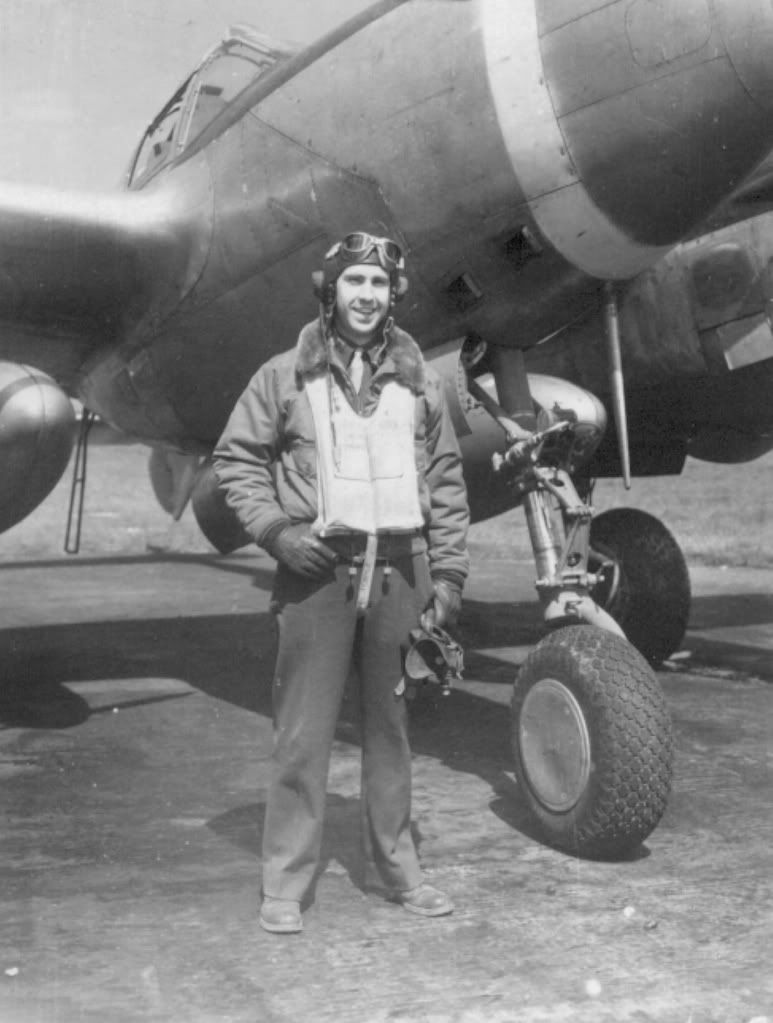
Major Leon "Temp" Temple CO 430th FS ""One of the good ones!""
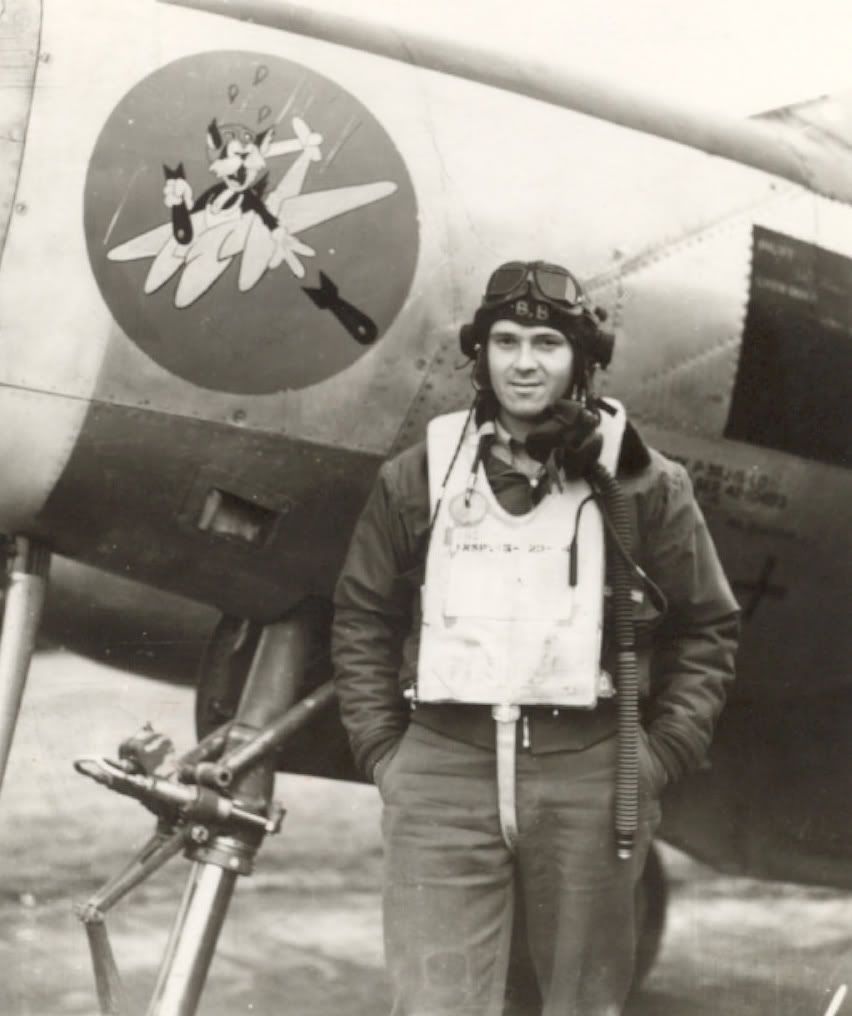
1Lt Bruce Belford 430th FG

Major Leon "Temp" Temple CO 430th FS ""One of the good ones!""

1Lt Bruce Belford 430th FG
Fri Jun 05, 2009 10:01 pm
I was at dinner tonoght with 5 101st D-Day vets and a toast was being given at the exact time they were going out the door over the Cotentin Peninsula.
May we al thank them and the ones who stayed behind.
May we al thank them and the ones who stayed behind.
Fri Jun 05, 2009 10:09 pm
Jiggers, I know who two of 'em were, and maybe the 3rd, depending on his health.
The other two?
BTW, I'd love to fly-on-the-wall sometime...
The other two?
BTW, I'd love to fly-on-the-wall sometime...
Fri Jun 05, 2009 10:52 pm
What was it like?
It must have been something like this:
http://www.youtube.com/watch?v=1oTmoGOJEWY
(From A Bridge Too Far, the film of the Market Garden, Arnhem operation).
It must have been something like this:
http://www.youtube.com/watch?v=1oTmoGOJEWY
(From A Bridge Too Far, the film of the Market Garden, Arnhem operation).
Sat Jun 06, 2009 12:01 am

Brigadier General Anthony C. McAuliffe, artillery commander of the 101st Airborne Division, gives his various glider pilots last minute instructions before the take-off on D minus 1.
The following article has some interesting stats, and some thought provoking stuff.
http://news.bbc.co.uk/2/hi/uk_news/magazine/8079965.stm
The fact of air superiority is often taken for granted. That came at a cost, as Jack's pointed out. That air superiority enabled a better chance for the troops and the ships, and for the pounding of the Pas de Calais (just as a diversion) and Normandy.
In the previous nine weeks 197,000 sorties had been flown (at a cost of 1,251 aircraft and 12,000 aircrew) and 195,000 tons of bombs had been dropped on German military and communications targets.
It was the biggest, most complex military operation in history; the biggest military deception in history, and the most technologically diverse and innovative in history - never before, or since has so many new technologies been deployed essentially for the first time. Just a list would run for pages - 'Pluto' 'Mulberry', the deception operations of 515 Squadron with their Boulton Paul Defiants (proper electronic warfare) 'Channel Stop' by the Sunderlands of Coastal command and the rocket armed Swordfish keeping the U and E-Boats away, the major use of Horsa and CG-4 gliders including several 'Coup de Main' operations - Mini subs and frogmen mapping and sorting the beaches, as well as better known work. Then there was Patton's mythic army that kept the Germans wrong footed right into the real landings.
My wife's great uncle was one of the RCAF members in the RAF who took off and didn't get back a few days earlier. He was flying for 161 Squadron, the secret agent unit. He and his crew and two agents were all killed.
Lots had been learned from previous operations. Plan 1919 had been forgotten, but makes fascinating reading; the debacles at Slapton Sands, Sicily's disastrous air-landing, and Dieppe all changed Allied thinking the hard way, and resulted in some of D Day's success.
(One of the biggest errors of D Day was the decision taken to reject Hobart's Funnies by the American planners. The lessons of Dieppe had gone home hard to the British and Canadians and armour capable of fulfilling many specialist roles on the British and Commonwealth beaches - a shortage too many Americans paid for with their lives. However that was one of the few points one could, with perfect hindsight, say should have been done differently.)
Much of the work was British:
It was Britain's last day as a superpower.
No army in the world today could project such force and much of the effort on 6 June 1944 was British - about 60% of the troops landed were UK or Commonwealth (Canadians); the warships were predominantly from the Royal Navy - even the landing craft taking the Americans to Omaha Beach were manned by British seamen - and much of the air power came from the RAF.
No one, would take anything from the American contribution of course. From Eisenhower, at the top to the men who didn't make it out of their landing craft.
But there were many more:
British, Free French, Belgian, Dutch, Luxembourgois, Czechs, Poles, Greek, Danish and Norwegian naval and military forces all took part, or flew overhead with the vast air armada. Many soldiers from the Irish Republic fought with British units, while some anti-Nazi Austrians and German Jews were involved in the allied deception and intelligence war.
I doubt any part of the Commonwealth was not represented.
It couldn't have been done without them all.
As ever, it was at the end down to soldiers taking and holding land - as war has been from the earliest days.
Many had laboured to put those soldiers there - for the most part, they had been given the greatest array and most sophisticated equipment known to man, but, in the end, it was down to the courage, discipline and guts of every solider that the day was won.
Some 209,672 allied soldiers were killed, wounded or went missing, 16,714 allied aircrew lost their lives. German losses were estimated at 250,000.
Additionally, 2,483 Normans connected with the French Resistance were executed before or during the campaign, while as many as 35,000 civilians died (the lowest estimate is 15,000) and 60,000 were wounded in the liberation. This averages out at 6,600 casualties per day for the entire campaign.
A high price for a necassary liberation.
And as a PS, I didn't know this, did you?
One of the myths of Operation Overlord (the codename for the invasion of France) is it was the biggest seaborne invasion in history. It was not. Nor was it the biggest maritime invasion of World War II. That accolade goes to the 1943 invasion of Sicily - a far greater undertaking than Normandy and one from which many valuable lessons were learned.
Sat Jun 06, 2009 12:42 am
Flew over Upottery last evening, about the time 65 years ago the 101st were getting ready to board their C-47s for their ride to destiny...
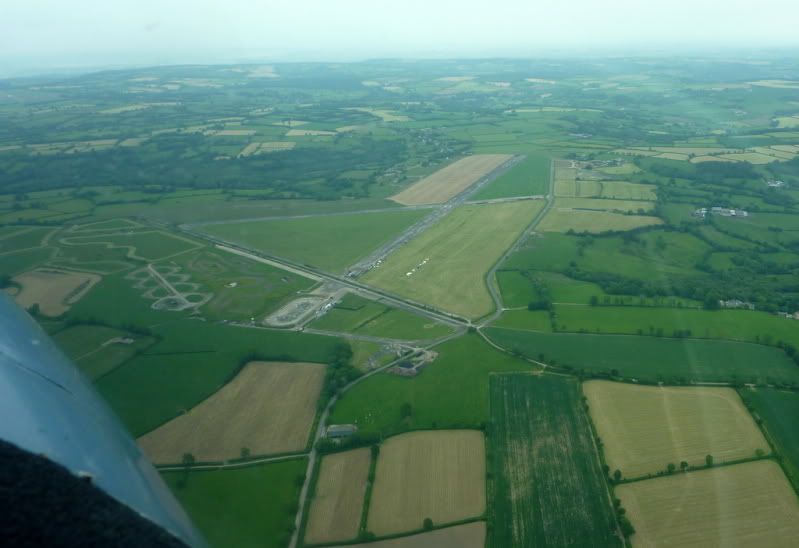
You can see activity in preparation for a two day commemoration, part of which has some of the old runways open for visiting aircraft...an opportunity not to be missed but as it is real D-day weather here this morning I'm hoping for better weather later.
Some photos...no controlled airspace over the area...
Pont du Hoc
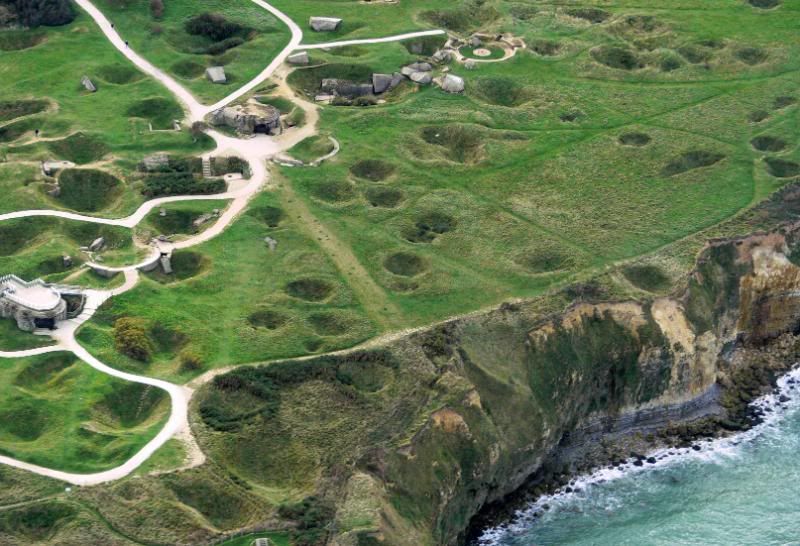
Cemetery
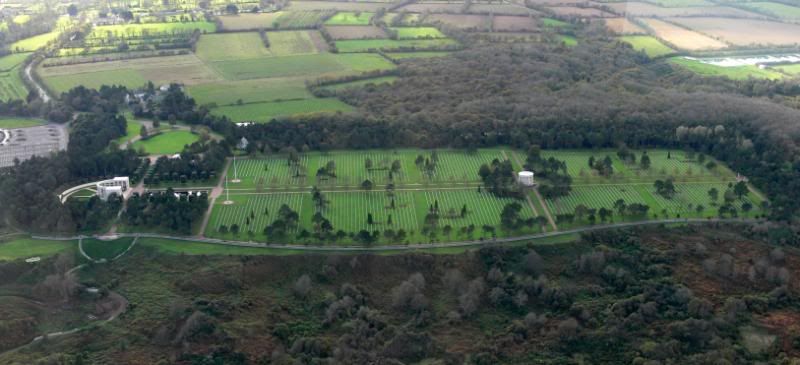
Utah
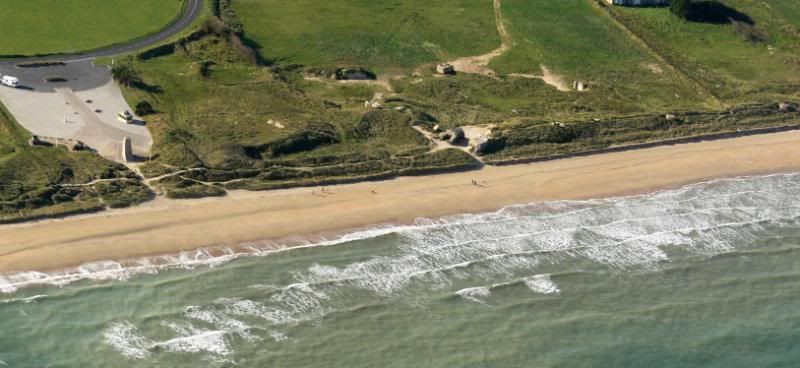

You can see activity in preparation for a two day commemoration, part of which has some of the old runways open for visiting aircraft...an opportunity not to be missed but as it is real D-day weather here this morning I'm hoping for better weather later.
Some photos...no controlled airspace over the area...
Pont du Hoc

Cemetery

Utah

Sat Jun 06, 2009 1:40 am
Ian,
Fantastic pictures. Thank you for posting them...
Fantastic pictures. Thank you for posting them...
Sat Jun 06, 2009 1:48 am
APG85 wrote:Fantastic pictures. Thank you for posting them...
Seconded!
Another fascinating sideline. 'Garbo' in The Times.
http://www.timesonline.co.uk/tol/commen ... 440365.ece
...From the MI5 safe house in Crespigny Road, Hendon, Pujol fired off more than 500 radio messages between January 1944 and D-Day, a fantastic web of deceit from his posse of bogus agents. The deception was astonishingly successful. On the day before D-Day Garbo warned the Germans that an attack was imminent, too late for the enemy to respond, but early enough to boost Pujol's status with the Nazis still further. Three days after D-Day Garbo was still warning his German handlers that the attack on Normandy was a feint and the real assault would come near Calais.
Throughout July and August 1944, the Germans kept two armoured divisions and 19 infantry divisions on the Calais coast, waiting for an attack that never materialised and giving the Allies time to reinforce the Normandy bridgehead.
Had Rommel used those divisions to counterattack in Normandy, the tide of war might have turned. But Pujol's masterful deceptions held firm and the Nazis never rumbled him. Six weeks after D-Day he was awarded the Iron Cross by order of the Fuhrer. He was simultaneously awarded the MBE, in secret....
Sat Jun 06, 2009 3:02 am
Great info! Even though I had no relatives at D-Day, every June 6th, I always take a few moments to remember those who gave their lives, so I could live freely today. I can't even imagine what it might have felt like to be on those LST's, on the first few waves, with no beach-hold, knowing you were certainly going to die being mowed down with hostile fire in the first few seconds of hitting the beach. My ultimate respect for all our Veterans!
Sat Jun 06, 2009 3:34 am
...I can't even imagine what it might have felt like to be on those LST's,...
Me neither.
Michael Brennan was 19 when he landed on Gold Beach with the 1st Battalion Dorset Regiment. “The tide swept us in five minutes early, so we can claim that we were the first British infantry to land on French soil,” he said.
As soon as he left his landing craft, he said, he found himself chin-deep in the water. “The shorter men drowned there and then, dragged down by the weight of their kit. We worked our way up the beach in a sort of arc, losing men all the time. It was all hell let loose. There was a machinegun raking the whole of the beach, and they were also dropping mortars on us while the heavy guns behind them were decimating us.
“The only reason we succeeded was because there were so many of us. We were like ants. Although they were mowing us down there were still some who were going to get through.”
http://www.timesonline.co.uk/tol/news/u ... 438329.ece
Sat Jun 06, 2009 4:20 am
yes, Day of memory.
We will never forget these tragic days.
few years ago, I visited the beatch, and I was shocked by the contrast of the beautiful landscape and peacefull atmospher of Omaha Beach now, and what the place have to been in June 6th 1944. It's difficult to believe that so much young men come from so far to fight and die on these beautifull sand....
I also visited different cemeteries of the two camps, and that was hearth breakings. The Allied cemetery are big, beautifull, majectics and of course dramatic. The German cemeteries are small, made of dark stone. The contrast between the winers and the looser was huge.
I'm not there of course to say that German are not responsible of all that horror, but after red the name of a 17 years old german soldier on a grave, it's impossible to not thinking that this poor boy was a victim, probably victim from himself to have accepted to following the Nazi and Hitler idea, but definetly also a victim...
Regards. Sorry but it's more difficult to me to express feeling in English that speak about planes...
We will never forget these tragic days.
few years ago, I visited the beatch, and I was shocked by the contrast of the beautiful landscape and peacefull atmospher of Omaha Beach now, and what the place have to been in June 6th 1944. It's difficult to believe that so much young men come from so far to fight and die on these beautifull sand....
I also visited different cemeteries of the two camps, and that was hearth breakings. The Allied cemetery are big, beautifull, majectics and of course dramatic. The German cemeteries are small, made of dark stone. The contrast between the winers and the looser was huge.
I'm not there of course to say that German are not responsible of all that horror, but after red the name of a 17 years old german soldier on a grave, it's impossible to not thinking that this poor boy was a victim, probably victim from himself to have accepted to following the Nazi and Hitler idea, but definetly also a victim...
Regards. Sorry but it's more difficult to me to express feeling in English that speak about planes...
Sat Jun 06, 2009 4:34 am
Iclo wrote:I'm not there of course to say that German are not responsible of all that horror, but after red the name of a 17 years old german soldier on a grave, it's impossible to not thinking that this poor boy was a victim, probably victim from himself to have accepted to following the Nazi and Hitler idea, but definetly also a victim...
A good point, one for those of us who currently feel we are not well represented by a democratic governments can bear in mind. Once Hitler was in power, it was a free ride for the morally ambivalent, and good times, carte blanche for the sociopaths and a growing he11 for those who were not Party followers.
It is easy to say the Germans should've done this or that, but an individual German had little real chance of peace. Hitler was as responsible for the destruction of Germany and the moral perversion of his adopted country as the damage he wrought elsewhere.
Still Europe learned from the failures of Versailles how to build a better continent and argue in Brussels rather than through war.
Beau j jour, mon ami!
Sat Jun 06, 2009 4:45 am
Glad you liked the photos..it was the best weather I'd been along there in but when I handed the camera to my wife I left it on a wrong setting hence the shots are a little out of focus and were the only ones salvageable...[that's being diplomatic  ]
]
I am amazed that the guys just keep going especially at Omaha...Respect.
Know that links are frowned on but Robert Capa who went ashore with the first wave is worth reading especially the now iconic photos...
http://www.skylighters.org/photos/robertcapa.html
"...The water was cold, and the beach still more than a hundred yards away. The bullets tore holes in the water around me, and I made for the nearest steel obstacle. A soldier got there at the same time, and for a few minutes we shared its cover. He took the waterproofing off his rifle and began to shoot without much aiming at the smoke-hidden beach. The sound of his rifle gave him enough courage to move forward, and he left the obstacle to me..."
I am amazed that the guys just keep going especially at Omaha...Respect.
Know that links are frowned on but Robert Capa who went ashore with the first wave is worth reading especially the now iconic photos...
http://www.skylighters.org/photos/robertcapa.html
"...The water was cold, and the beach still more than a hundred yards away. The bullets tore holes in the water around me, and I made for the nearest steel obstacle. A soldier got there at the same time, and for a few minutes we shared its cover. He took the waterproofing off his rifle and began to shoot without much aiming at the smoke-hidden beach. The sound of his rifle gave him enough courage to move forward, and he left the obstacle to me..."